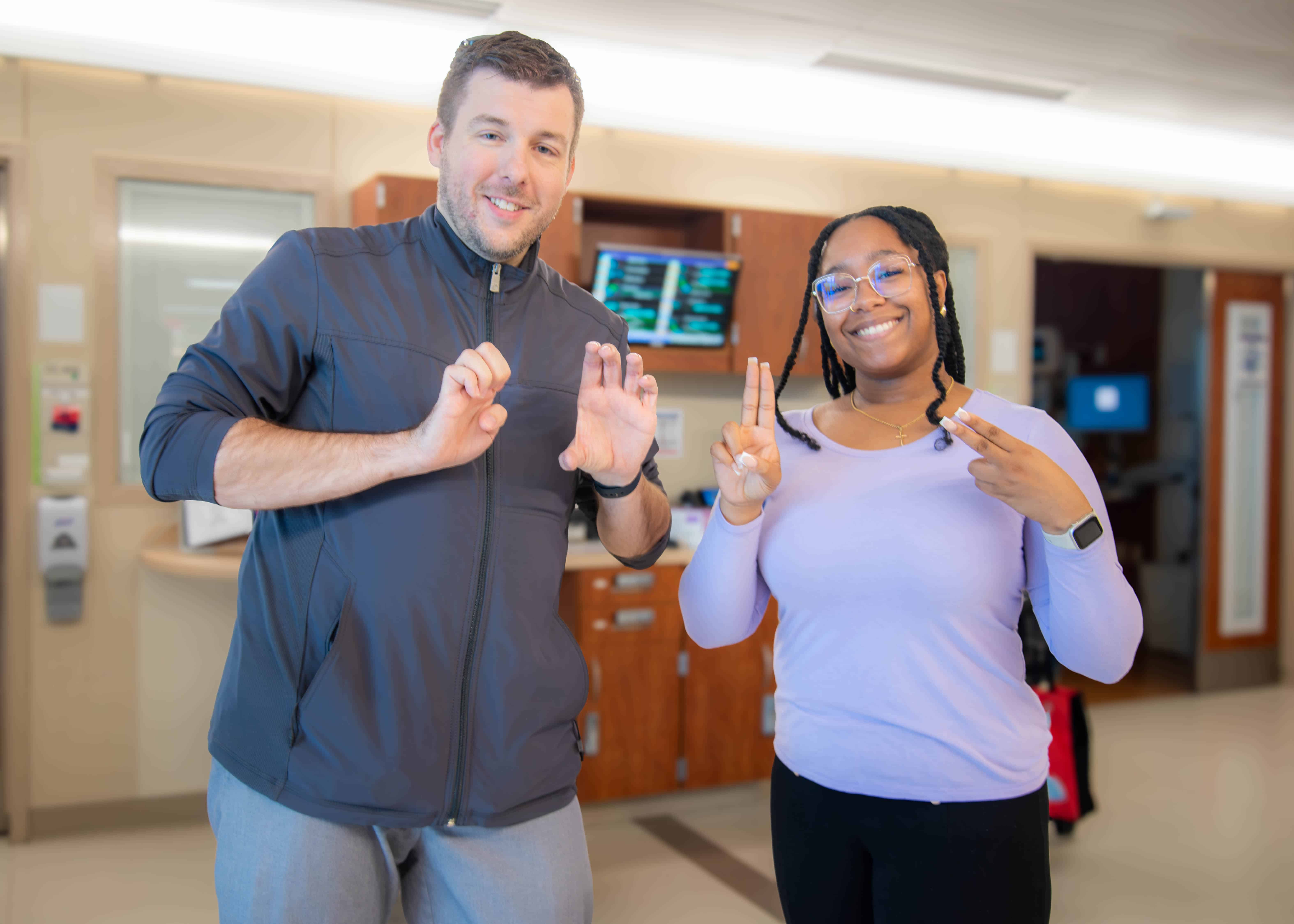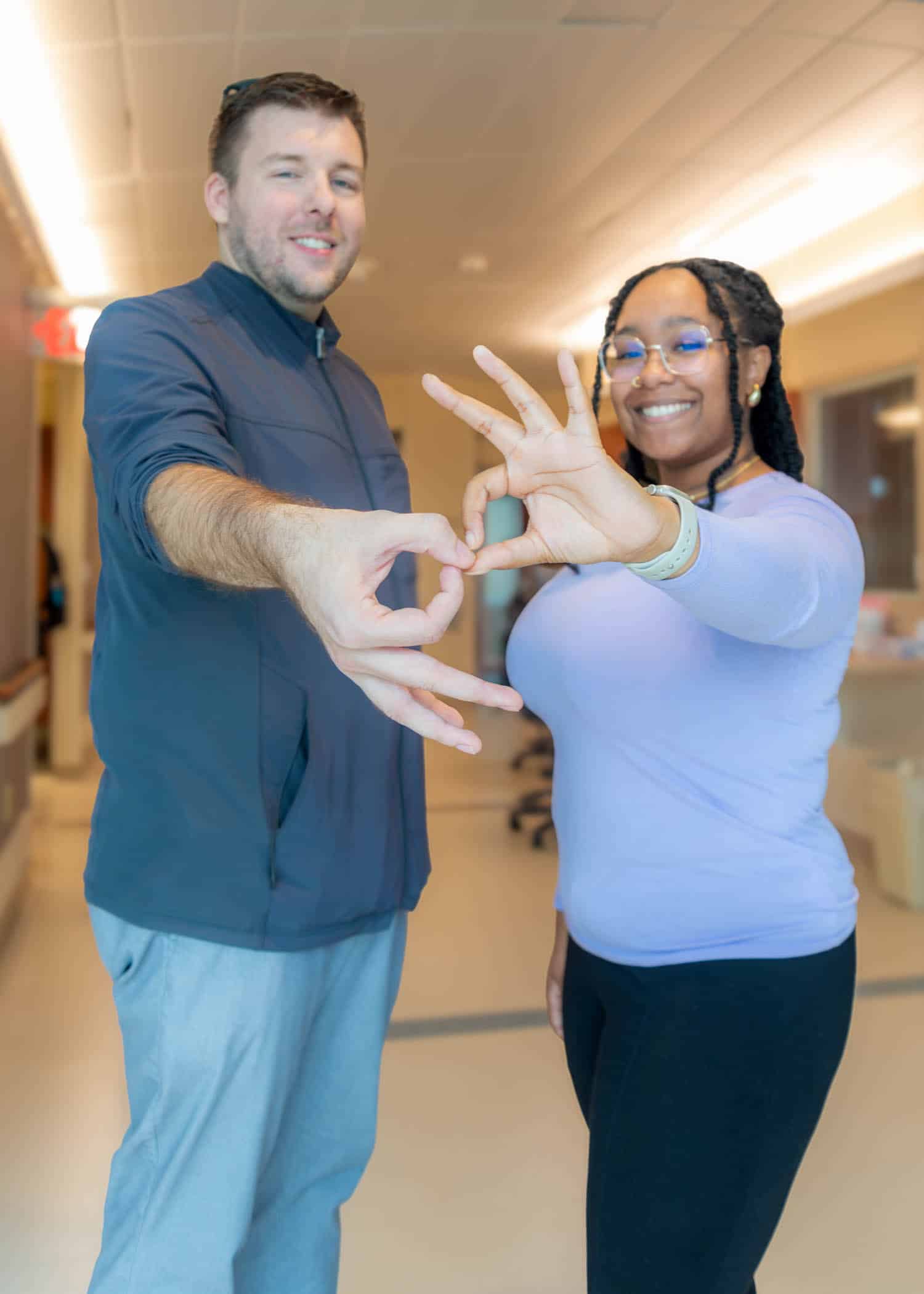As an academic health system, ECU Health serves as both a rural care delivery organization and a training ground for health care providers and support services team members.
While resident physicians and nurses come to mind as the most obvious roles that blend the clinical and academic environments, a new resident track is helping bridge an important need for patients across eastern North Carolina who are Deaf or Hard of Hearing: the ECU Health American Sign Language (ASL) Residency program.
Launched in April, the ASL Interpreter Residency program was born from the demand for more skilled ASL medical interpreters. The program is designed to help increase the number of ASL interpreters available to patients across ECU Health’s system, in both hospitals and clinics, as well as train the next generation of interpreters for a career in the medical field.
More than 500,000 people throughout the United States use ASL to communicate as their native language, making ASL the third most common language in the United States, after English and Spanish, according to the Commission on the Deaf and Hard of Hearing.

“There is a massive need for ASL interpreters in health care both nationally and locally,” said ECU Health ASL coordinator Reid Barnes, who designed the program. “When we looked at this need in the lens of our role as an academic health system, it made sense to model something similar to the physician resident experience.”
Residents in the program join with a two-year commitment where they focus on skill development and clinical interpreting during their first year, with close supervision in the clinical setting. The second year of the program incorporates both hospital and clinical work while also assisting with ongoing educational efforts.
Barnes, ECU Health’s only full-time ASL interpreter, works with up to 6 or 7 patients on any given day, often times spread across the health system’s 29 county service area, so the demand is obvious. What is less obvious, however, is the process behind becoming a skilled medical ASL interpreter.
A licensed or certified ASL interpreter does not receive a specialized certificate in medicine. ASL interpreters undergo rigorous testing to ensure they have generalized competencies for a multitude of interpreting settings. However, the decision to specialize in any setting is left to the individual interpreter. Specialization often involves an extensive combination of targeted workshops and firsthand experience. As a result, it is often difficult for newer interpreters to safely gain firsthand experience.
All of these factors, Barnes said, inspired the creation of the ECU Health ASL Interpreter Residency program.
“Health care should always be provided in a patient’s native language,” said Barnes. “Imagine what your health care experience would feel like if you couldn’t communicate with your doctors and nurses in your primary language? For the Deaf and Hard of Hearing community, that is a very real reality. We can now expand our services, improve patient experiences and be a true training ground for skilled medical ASL interpreters.”
Jordan Satchell is the first ever resident in the ECU Health ASL Interpreter Residency program. Having served as an experience coordinator in ECU Health Medical Center’s emergency department, she has a close understanding of the important role ECU Health serves as the flagship health system in eastern North Carolina.
“Returning to ECU Health as the first ASL Interpreter Resident has been a rewarding experience in many different ways,” said Satchell. “You never truly ‘arrive’ when it comes to interpreting, so this program has allowed me to build my skills and improve my knowledge about health care. The patients I work with have already helped me become a better interpreter, and I can only hope to continue serving them, learning their needs, breaking down communication barriers, while also being a resource to the next incoming resident.”
Barnes said Satchell will help chart the future of the program, as the two work together to closely examine the needs of the patient population while tailoring the program’s design to ensure it provides the best resident experience possible.
